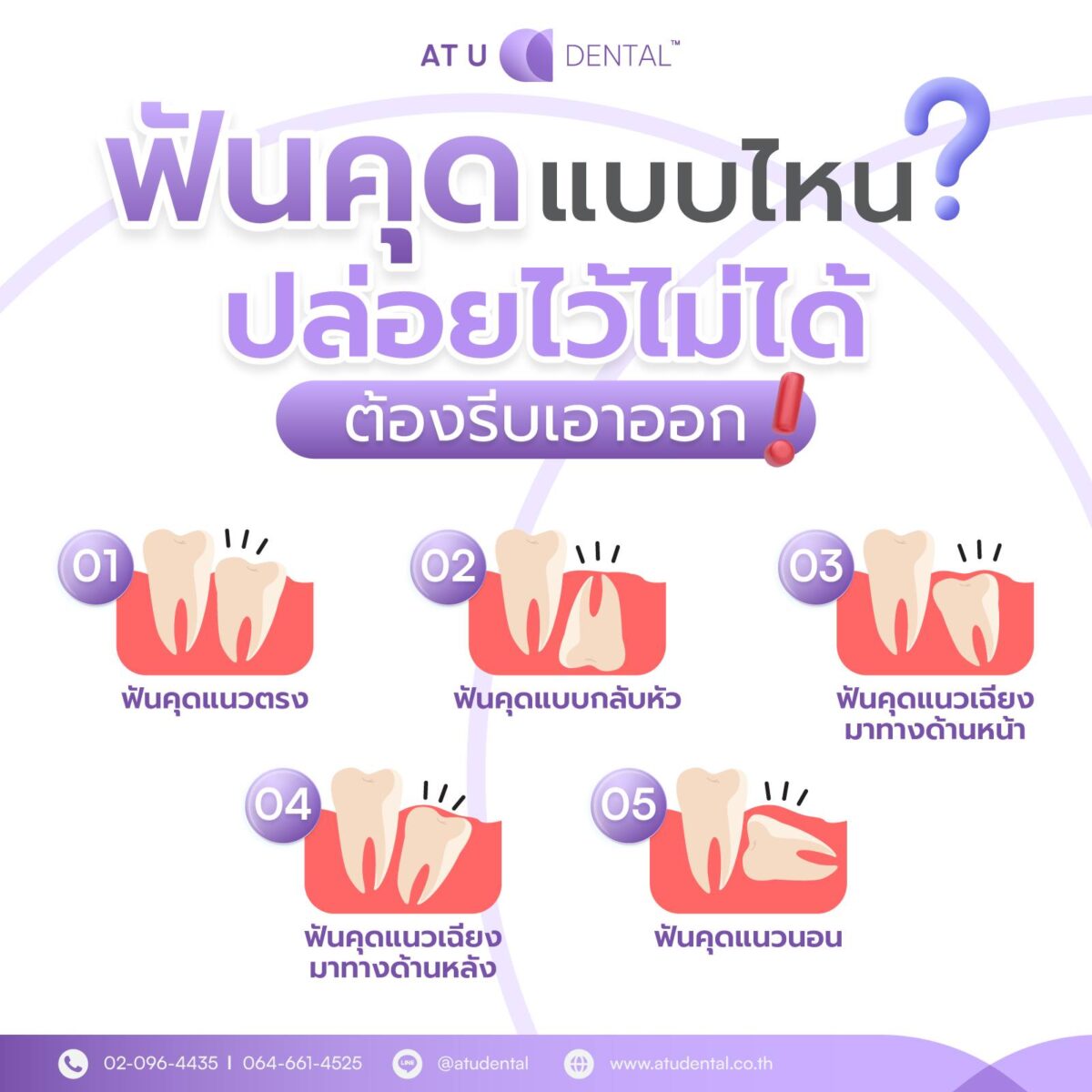Dental Clinic
คลินิคทันตกรรม
Tooth Extraction and Wisdom Tooth Extraction
Tooth extraction is a necessary dental procedure when a tooth can no longer be preserved due to severe decay, infection, or misalignment. Additionally, wisdom tooth extraction is performed to remove the last set of molars that often grow improperly—becoming impacted or misaligned—potentially affecting adjacent teeth and overall oral health.
Types of Tooth Extractions
- Simple Tooth Extraction
- Performed on impacted or improperly positioned wisdom teeth
- Requires surgical intervention and X-ray imaging to assess tooth position
- Necessary for wisdom teeth causing pain, infection, or dental misalignment
- Surgical Wisdom Tooth Extraction
- Performed on impacted or improperly positioned wisdom teeth
- Requires surgical intervention and X-ray imaging to assess tooth position
- Necessary for wisdom teeth causing pain, infection, or dental misalignment

Reasons for Tooth Extraction
- Severe Tooth Decay When fillings or crowns can no longer restore the tooth
- Infection When an infection spreads to the root or jawbone
- Overcrowding Misaligned teeth causing oral complications
- Impacted Wisdom Teeth Teeth that fail to emerge properly and affect nearby teeth
- Orthodontic Preparation Creating space before braces treatment
Tooth Extraction Procedure
- Diagnosis and Treatment Planning
- The dentist examines your oral health and may use X-rays to assess the tooth's position.
- Local Anesthesia Application
- A local anesthetic is administered to numb the area and minimize pain.
- Tooth Removal Process
- Simple extractions involve pulling the tooth using dental instruments.
- Surgical extractions may require making an incision and sectioning the tooth into smaller pieces for easier removal.
- Post-Extraction Care
- The dentist provides instructions on wound care and infection prevention.
Frequently Asked Questions (FAQ)
Q: Does tooth extraction hurt?
A: Local anesthesia is used to minimize pain, though mild discomfort may occur afterward, which can be managed with prescribed pain relievers.
Q: What should I avoid after tooth extraction?
A: Avoid hot beverages, smoking, and using a straw for the first 24 hours to prevent complications.
Q: How long does wisdom tooth extraction take?
A: The procedure typically lasts 30 minutes to 1 hour, depending on complexity.
Q: How should I care for my mouth after extraction?
A: Follow dentist recommendations, such as applying an ice pack, eating soft foods, and maintaining gentle oral hygiene.
Q: Will tooth extraction affect neighboring teeth?
A: If performed by an experienced dentist, the procedure should not negatively impact surrounding teeth.
Tooth and wisdom tooth extractions are essential for maintaining oral health when necessary. Professional dental care and proper aftercare ensure a smooth recovery. Consult an experienced dentist to determine the best course of action for your dental needs. Protect your oral health—schedule a consultation with your dentist today!
References:
- The Dental Association of Thailand
- Guidelines for Tooth Extraction – Ministry of Public Health
- Oral Surgery: Principles and Techniques
- Information from Professional Dental Service Providers
Dental Treatment


